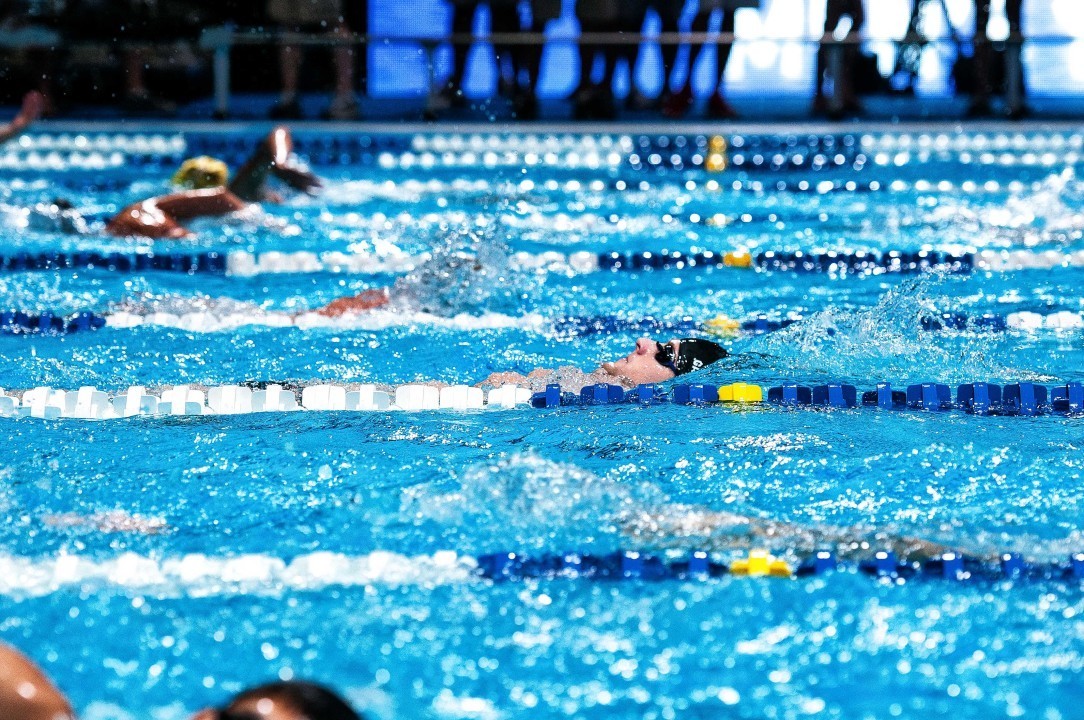Thanks to Cybil Streett for contributing this piece.
Are you plateauing, burning out, or just not getting the results you want at meets? Lets talk about how to use CPR to save your swim.
“Swimmers, Take your mark.”
When was the last time you heard this? What was going through your mind at that moment? Was it a time to make? A person to swim faster than? The desire to make finals? These last minute thoughts or goals are what push us to succeed. Goals are paramount to performance – they can make or break your swim. The reality that success in athletics is directly connected to goal setting is not a news flash. All swimmers set goals (if you don’t you should be). But, are you setting the right kinds of goals – goals that will bring results? Apply these three simple steps to remove all doubt!
Is Your Goal…
CLEAR? – Replace the vague words with a measurable technique like a specific stroke rate or kick beat. Choose a technique unique to your training that you know if you are able to complete it, you will swim faster and potentially drop time. Practice it before the meet and in warm up. Incorporate it into your goal.
POSITIVE? – Too much energy is wasted on goals that have negative words. Positivity can be achieved by simply re-wording many goals. For example, having a goal like “don’t breathe in and out of the wall” or “don’t glide into the turn” requires you to imagine taking an extra breath and gliding! The opposite of what you are wanting to do! Re-wording these goals to “breathe on the third stroke off the wall” and “take an extra stroke into the wall” is a simple fix.
REALISTIC? –Dreams are what sports are made of. Big dreams motivate us to train harder and inspire us to reach our full potential. The key is to set realistic short-term goals to help you along the way. Think of a long-term goal such as the Olympics at the top of a staircase… in that analogy, each stair to get to the top of the staircase needs to be a realistic step – one that you can visualize, train for, and surmount.
Quality goal setting prevents burnout, plateauing, and general loss of interest. When we set realistic goals, we combat burnout. When we are plateauing in our swims, we can focus on clear measurable techniques to incorporate as our goals and celebrate the victories of achieving those new milestones.
Are you a swimmer in need of resuscitation? CPR test your goals and get your head back into your swim. Use CPR on your goals so that the next time you hear “Swimmers, take your mark” you are confident in what happens after the Beep.
Cybil Streett swam for the University of Texas and then went on to coach the National team at San Clemente Aquatics. She is now a Marriage and Family Therapy Intern specializing in Sport Psychology at The Gold Standard. Contact Cybil at [email protected] or 949.441.0832. Follow The Gold Standard on Facebook.
Cybil’s passion for sports psychology has been cultivated throughout her lifetime of competitive swimming and surfing. She was a D1 scholarship swimmer for the University of Texas where she obtained her BA in Psychology. Since her undergraduate work, Cybil moved back to her home state of California where she competed in the WSA and various Pro/Ams along the coast. She began her coaching career with the head coach position for the Half Moon Bay Surf Club and in 2009 began coaching for the USA Swimming Club team San Clemente Aquatics where she worked with the Senior Groups and the National Team swimmers. Within those groups, she coached Olympic Trial athletes, US Open finalists, and a national level U.S. Paraplegic swimmer. It was through her coaching experience that Cybil realized the value of sports psychology and working with athletes and families alike.
Cybil graduated from Pepperdine in 2014 with a Masters in Clinical Psychology with Emphasis on Marriage and Family Therapy. Completing her clinical practicum at Mission Hospital’s South Orange County Family Resource Center, Cybil gained valuable experience working with children, adults, families, and couples. Cybil is a member of the Psychology International Honor Society (PSI CHI) and served as the Campus Director for Pepperdine for two annual terms.
Cybil enjoys working with athletes and families and she feels that there is nothing better than helping others overcome obstacles and achieve greatness in their sport. Cybil is a registered Marriage Family Therapist Intern with the Board of Behavioral Sciences (IMF88273). She is also a member of the American Swim Coaches Association (ASCA) and a certified USA Swimming Coach.

Congratulations!!
Great work
Congratulations, love the article!